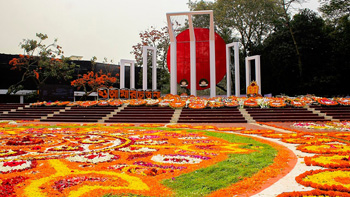 Language Movement Day
Language Movement Day

Language Movement Day (Bangla: ভাষা আন্দোলন দিবস Bhasha Andolôn Dibôs), also known as 'Shaheed Dibas' or 'Martyrs' Day,' observed annually on February 21st, is a day of great significance in the country's history. It commemorates the valiant struggle and sacrifice of the Bengali people for their right to speak their mother tongue, Bengali, leading to a broader movement for the country's independence. This day not only reflects the linguistic and cultural pride of Bangladesh but also stands as a symbol of linguistic rights and cultural identity worldwide.
The Historical Background of Language Movement Day
The roots of Language Movement Day date back to the partition of India in 1947 when Bangladesh was a part of Pakistan. The Pakistani government's attempt to impose Urdu as the sole national language met with strong opposition in East Pakistan (now Bangladesh), where the majority of the population spoke Bengali. The Language Movement was a response to this linguistic and cultural oppression, emerging as a significant force in the early 1950s.
The Events of February 21, 1952
February 21, 1952, marks a pivotal moment in the Language Movement. On this day, students and political activists took to the streets of Dhaka to protest against the government's decision to impose Urdu. The peaceful demonstrations were met with harsh retaliation from the police, leading to numerous deaths and injuries. The sacrifice of these martyrs galvanized the entire nation, sparking a widespread movement that eventually contributed to the birth of Bangladesh as an independent nation in 1971.
Commemoration and Celebrations
Language Movement Day is observed with solemn respect and national pride throughout Bangladesh. The central event of the day takes place at the Shaheed Minar, a monument built in memory of the martyrs in Dhaka. People from all walks of life gather here to pay homage, offering flowers and participating in cultural programs that honor the Bengali language and its martyrs. Educational institutions and cultural organizations also hold seminars, discussions, and artistic performances highlighting the importance of mother languages.
Impact on Bengali Culture and Identity
The Language Movement had a profound impact on Bengali culture and identity. It fostered a strong sense of unity and cultural pride among the people of Bangladesh. The Bengali language, with its rich literary and cultural heritage, became a symbol of resistance and self-determination. This movement played a crucial role in shaping the national identity of Bangladesh, reinforcing the significance of linguistic and cultural rights.
Language Movement Day and UNESCO's International Mother Language Day
In recognition of the significance of the Language Movement in Bangladesh, UNESCO declared February 21st as International Mother Language Day in 1999. This global observance promotes linguistic diversity and multilingual education, highlighting the importance of preserving and promoting all mother languages. It serves as a reminder of the linguistic and cultural struggles faced by communities worldwide.
Educational Initiatives and Awareness
Language Movement Day is also an opportunity for educational initiatives and awareness-raising about the importance of linguistic diversity and cultural heritage. Schools and universities across Bangladesh use this day to educate students about the history of the Language Movement and the value of linguistic rights. These educational efforts ensure that the legacy of the Language Movement continues to inspire future generations.
In essence, Language Movement Day in Bangladesh is a day of remembrance, pride, and cultural affirmation. It commemorates a pivotal moment in the country's history when the people's love for their language fueled a broader struggle for independence. This day serves as a powerful reminder of the importance of preserving one's linguistic heritage and stands as a beacon of inspiration for linguistic and cultural rights movements around the world.